Nendo turns Alcantara material into timber-patterned furniture
The woodgrain patterns across this furniture by Japanese design studio Nendo are formed by layering, rolling and cutting sheets of artificial suede (+ slideshow).
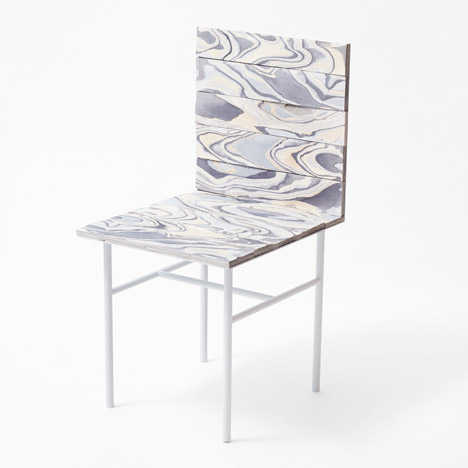
Nendo created the effects using a material called Alcantara – made from 68 per cent polyester and 32 per cent polyurethane, and produced by the Italian company of the same name.
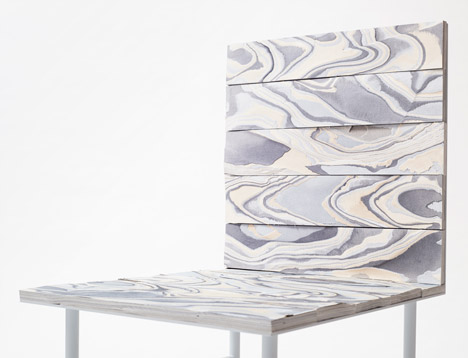
The textile has a similar look and feel to suede, but is designed to be more durable and water resistant.
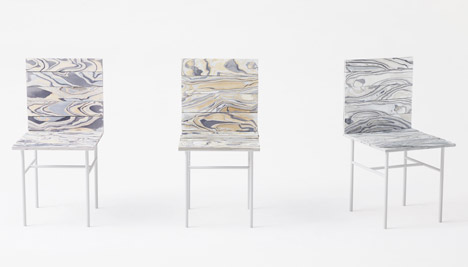
To form the patterns, sheets of Alcantara in pale blue and grey tones are layered on top of one another and then rolled into a cylinder.
When sliced vertically at an angle, the material reveals a grain that could be mistaken for dyed timber.
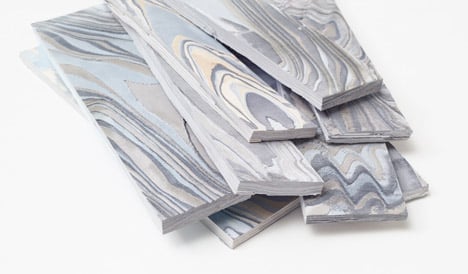
"Alcantara of various colours have been layered and rolled up to create a kind of log, and then cut into slices of lumber to create the effect of 'Alcantara tree-rings'," said Nendo.
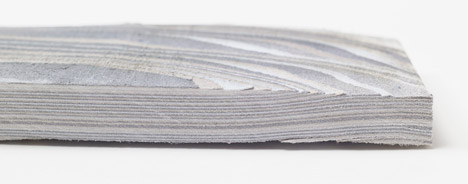
Nendo used these sections to create short planks, which were assembled into flat surfaces. Mounted onto white metal frames, the planes form chair seats and backs as well as larger tabletops to demonstrate practical applications for the experimental technique.
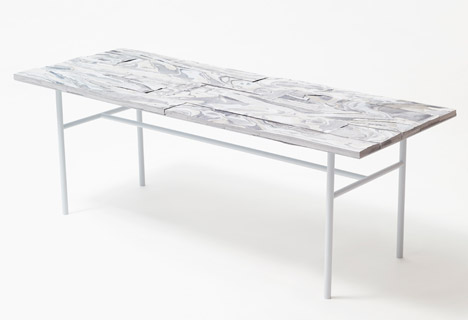
"This material can be used for flooring or furniture finishes, bringing out a whole new expressive dimension to Alcantara," Nendo said.
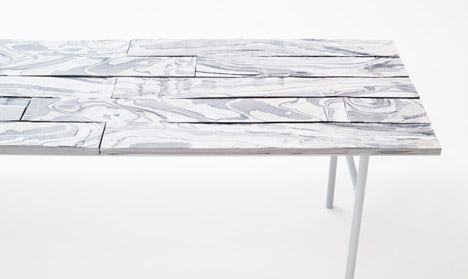
The finished Alcantara Wood furniture pieces are on display as part of an exhibition titled Alcantara, Technology of Dreams, which runs until 31 May at Milan's Palazzo Reale.
Dezeen Book of Interviews: Nendo founder Oki Sato features in our new book, which is on sale now
The exhibition opened to coincide with the Milan Expo 2015 event, for which Nendo also created a range of tableware on display inside Japan's pavilion.
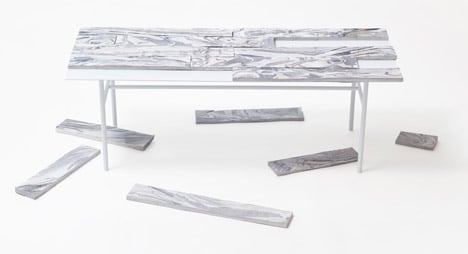
The Alcantara products were also shown at the Nendo Works 2014-2015 exhibition in April, along with more than 100 products designed by the studio over the past year. In an interview with Dezeen, Nendo's founder Oki Sato said that working on so many projects at once "relaxes" him.
Photography is by Akihiro Yoshida.